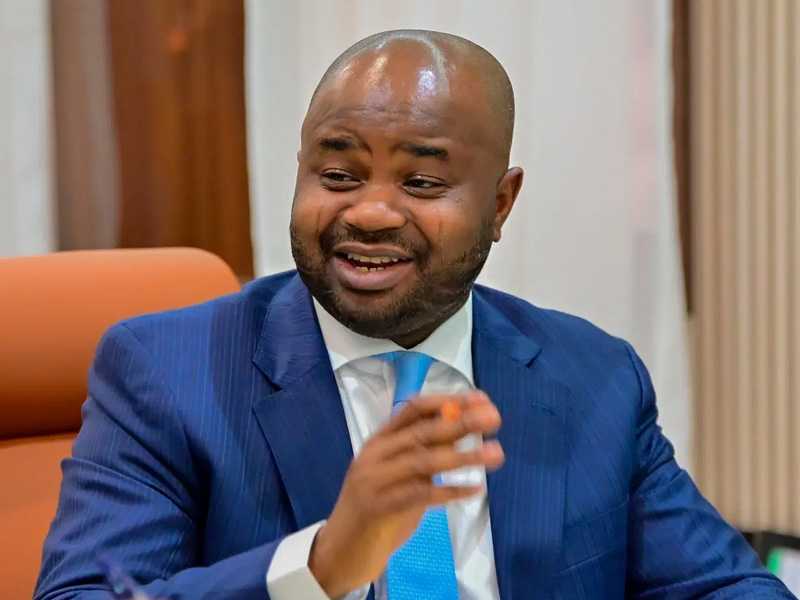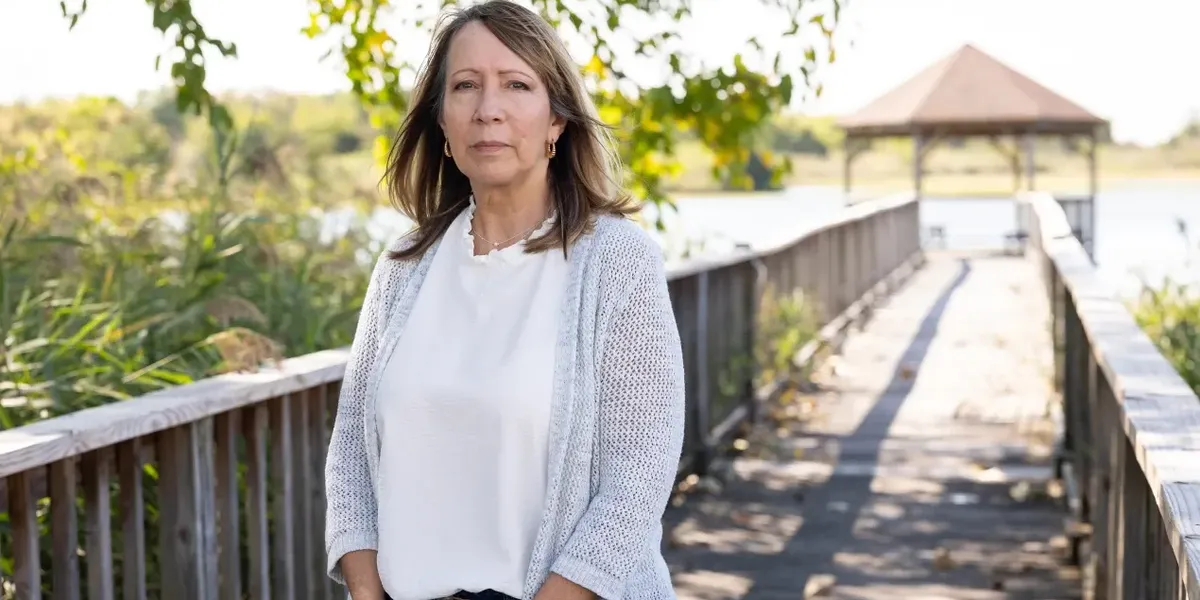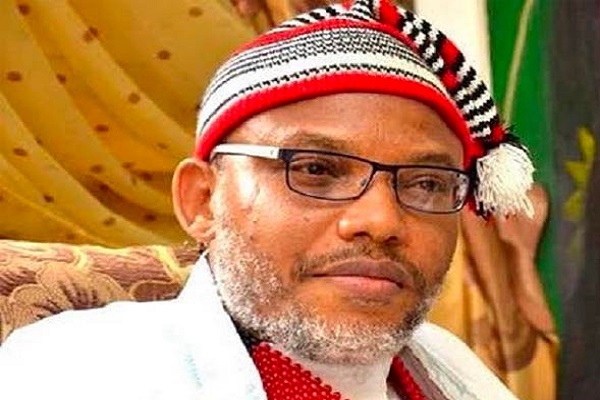By President Bola Ahmed,Rapheal
Copyright thesun

Federal Inland Revenue Service (FIRS) chairman, Dr Zacch Adedeji,in this interview spoke on his headship of the apex tax agency in the last two years.He also delved into the economic reforms of President Bola Tinubu and the outlook of the economy from next year including expected gains of the reforms
Two years after you took over as chairman of the Federal Inland Revenue Service (FIRS), what would you say have been your achievements? How has the journey been so far?
When we set out on this journey, our mind was set on reforming the fiscal landscape of Nigeria and consequently changing the revenue structure of the Federation. To the glory of God, two years on, the figures are justifying that the reforms we embarked upon were the right steps to take. Let me start from the latest evidence, for the first time the three tiers of government shared a record monthly allocation in excess of N2trillion. States and local government councils are now more empowered to carry out their responsibilities to Nigerians in their domains. Nearly 70 per cent of what the three tiers of government gather every month to share comes from tax revenue collected by FIRS. This is an eloquent testimony to the reforms spearheaded by President Bola Ahmed Tinubu. So, all credits must go to the president for the courage he has demonstrated in leadership by setting the economic fundamentals right in order for the reforms to bring plenty fruits and gains for the Federation. By removing subsidy on petrol and collapsing the hitherto dual exchange rate windows, floating the Naira consequently, the health of the Federation account has blossomed greatly, as there are no bogus subsidy claims that would naturally have depleted the accruals into the pool.
In addition to these, the President in his inaugural speech, promised to make his industrial and economic policy one that will remove hurdles in the way of businesses. As a follow up to that, he set up a committee which worked so hard with other stakeholders to bring about the new tax laws that will go into effect from January next year. This is the best thing that has happened to Nigeria’s fiscal ecosystem since Independence in 1960. The President has fulfilled his promise to make businesses flourish by removing all burdens and hurdles. This has been done with the new tax laws which will eliminate multiple taxes. The president said we should not have more than single digit tax types and that has been achieved now. The various tax laws which are scattered in several legislations have now been consolidated and streamlined into a single document. Tax is not easy to collect anywhere in the world and it will be made more difficult if taxpayers go through unnecessary hurdles before they can pay taxes. The fact that these laws were scattered in various legislations gives room for different applications and make compliance cumbersome. But all that is history now. Perhaps the biggest deal for Nigerians is that food, education, shared transportation, agriculture are going to be VAT-free. This will have positive effect on more than 80 per cent of Nigerians. This is in addition to the tax adjustment of personal income of those in the low-income brackets. Small businesses with turnover of N50m will not pay tax. All these go to show that President Tinubu is a compassionate leader who knows there the shoes pinch for businesses. A more business-friendly environment has now been created with these new laws.
As an agency, FIRS has grown in leaps and bounds in the last two years. Carrying out the president’s mandate, we re-structured our internal operations from the functional tax typologies to a customer-centric approach. Now, all tax types are paid at a one-stop shop. How do I mean? We put the taxpayers into the emerging tax, medium and government tax as well as large tax buckets. The categorisation is done according to the turnover thresholds of the companies, with those having turnover of N5bn and above in the large taxpayers’ bucket. What this means is that these companies pay all the tax types they need to pay at a single tax office which caters for their categories. We no longer have a situation where several offices or units are writing the same company and asking for different things about the VAT or CIT and so on. This has engendered a shift in the mental geography of our staff and has seen a transition to a Federal Inland Revenue Service that is customer-focused. We are service providers to the taxpayers rather than coming across to them as a tax law enforcement agency. Non-oil tax revenue has grown exponentially and for the first time in a long while, we met and surpassed our oil and gas tax revenue target for this year, thanks to the improved security situation in the country which has energised the oil companies to grow and make profits.
Your praise for the President notwithstanding, some critics insist much has not really been done for the country and its citizens since he took over in 2023. How do you react to this?
Even you journalists know that it will be inaccurate for anyone to come with such claims. Yes, the removal of subsidy on petrol created some disruptions in the living conditions of most Nigerians. Transportation costs went up, as did prices of goods and services. The disruptions can be likened to the pain of a woman in labour. After she is delivered of the baby, comfort and bliss will follow. To cushion the effect, President Tinubu came up with the compressed natural gas initiative which has seen millions of vehicles converted from petrol to CNG. CNG buses were also procured and distributed to states. From the height that it went earlier in the year, petrol price is coming down. Don’t forget that we also came up with the crude-for-naira initiative which is helping local refiners get access to crude oil in naira. The exchange rate that went up is also coming down. The FX market has navigated away from arbitrage which used to be the order of the day. Foreign airlines and others were owed $7bn by Nigeria. President Tinubu came and cleared the debt. About 90% of revenue was devoted to servicing debt, but the rate has gone down to about 50% in two years. Tax-to-GDP ratio was 10% when we took over, now it is 13.5%. But that is not where we are going. We are aiming to beat Africa’s average of 15% and achieve 18% by 2027. External reserves have climbed up to $41bn from $4bn. The Nigeria Education Loan Fund (NELFUND) created by the President Tinubu has seen almost N90bn disbursed to over 450, 000 students across the country.
There are many road projects going on and some completed across the country, covering all the six geo-political zones. These roads are opening up economic corridors across the country. Federal allocations to state have grown by almost 70%, enabling them to enjoy a great level of fiscal stability and debt management. According to the figures from DMO, about 30 states repaid N1.85trillion in debt over 18 months. We should keep these figures in perspective when X-raying this Administration.
Tells us more about this 5% surcharge on petrol. What is the truth about it?
The problem with the people bandying this about is either that they don’t read or they read but do not understand. In my earlier comments, I said there were many laws about taxes which were scattered in various legislations, making compliance difficult for taxpayers. To remove the burden, we harmonised these laws into a single document and one of such laws is the petrol tax. The law had existed under the FERMA Act 2007 and the purpose was to use the money therefrom for road maintenance. The new law lays down the procedure for this provision to come into effect. There must be a commencement order from the Minister of Finance which will be publicly announced and also gazetted. So, it does not automatically mean that this provision will go into effect from January next year. Remember, one of the first set of reliefs President Tinubu brought to Nigerians was to remove 7.5% VAT on diesel. Is it that same president that will now impose additional cost on petrol for the citizens at this time?
FIRS was changed to Nigeria Revenue Service, what was the idea behind the name change and what should taxpayers expect from the agency when it goes full throttle next year?
Let me start from what the taxpayers should expect from us. They should expect a fair tax administration that will also come without hassles. Our core mandate is simple: assess, collect and account for revenue accruing to the Federation. In doing this, we will be fairer as a tax authority and continue to provide quality service to our only customers, that is, the taxpayers. The president has done a lot in bringing reliefs to Nigerians and businesses with the new tax laws. Compliance should be easier now and of course our advocacy has been on voluntary compliance. Do the right thing at all times and don’t wait till our tax people visit your premises. If they have any issue, they should get in touch with us. With the new tax laws, evasion will be pretty difficult. Companies should be diligent in their tax planning. Those who still think they can find a way to game the system will find out that evasion or trying to cut corners will be costlier than being compliant and honest.
There is one proverb in my language, “If the main course is not satisfying, there is nothing anybody can give you as a gift that will be enough.” So, if within, we cannot develop Nigeria, nobody will come and develop it for us. President Tinubu’s mantra has always been: “I’m not here to tax poverty; I’m here to tax prosperity. My government will tax the fruits of your investments and not the seeds.” When companies are doing well and are making profits and are expanding their operations, we will benefit from their doing well. The tax rate is simple. If the base is 10, we will have three. If the base increases to 20, we will have six. If the base increases to 30, we will have nine. So, if I want to have more, it’s not by going on an aggressive revenue drive. It is to help the companies to do well and that is when I will do well too. So, that is why, for us at Nigeria Revenue Service, we are here to remove all the hurdles in the way of our taxpayers. This is what President Tinubu has done with the new tax laws. He has fulfilled his electoral promise and we should all commend him for being a promise keeper.
On why we are changing from Federal Inland Revenue Service to the Nigeria Revenue Service, the word federal in the name of the agency gives the erroneous impression that we are only collecting tax revenue for the federal government. When you say ‘Inland’, it wrongly means we are only collecting money from Nigeria, which is not what we are doing. I will give you examples. We collect VAT, 90% of which is for states. When you therefore say ‘federal’, it means we are not representing what we do. The new name, NRS, shows we are the sole tax authority for all revenue collection for the Nigerian federation according to our laws.



